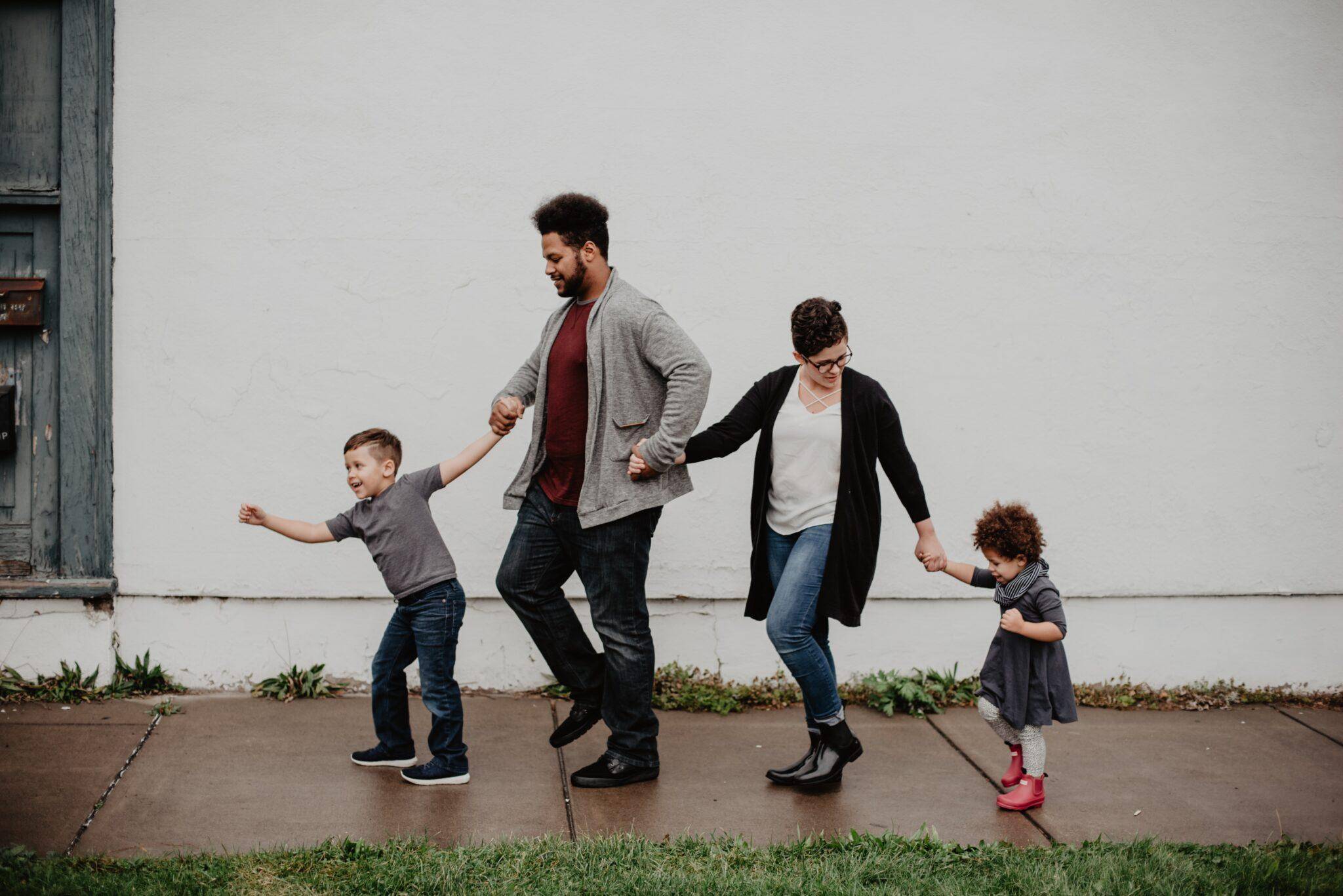Table of Contents
Know Everything In Detail About Different Types Of Parenting Styles And Which One To Consider To Raise Your Child
As a parent, you are always concerned about the child. There is a common question that occurs in the mind of every parent on the globe, that question is Which parenting styles to opt for that can benefit their child. Some parents leave everything on their child, some enforce rules, others are completely in the zone of letting their child do whatever they desire. Which one among these are you?
If you are someone who doesn’t have time for the child and looking for a technique that can be useful even in less time, it might be difficult as parenting styles are many, but the right parenting style is only one. Want to know the reason behind this statement? You have to keep reading to know which among these will seriously provide to be useful for you beloved child or children.
Presenting you a list of all four types of parenting styles and a bottom line regarding which one you should go for to raise your child.
Types Of Parenting Styles

Do you know that the way you guide children and parent them can affect your child widely? It can affect every little thing ranging from how much the child weighs to how the child is feeling about themselves.
To make sure you are not committing any mistake and provide your child with the best possible future, it is mandatory to ensure that your parenting style is healthy and supportive along with developmental factors associated with it. The way you interact and handle your kids tells a lot about their discipline and the influence you make on their life. It can also change their entire life. According to research, you can classify different parenting styles into four broad categories. These are:
- Authoritarian Parenting
- Authoritative Parenting
- Uninvolved Parenting
- Permissive Parenting
Each style of parenting is unique in its own way and includes different approaches to handle a child. There are a lot of characteristics associated with a parenting style that makes it easy to identify. If you are already a parent, have a look at which parenting styles you are opting for your child, is it authoritative, permissive, any other, or combined.
Authoritarian Parenting Styles

To know if you are one with authoritarian parenting styles, look at these statements and give them a thought if they sound similar to you?
- You are is a belief that kids should not be heard and only seen to you.
- When it is about making rules in the house you make sure it is either your way or the highway.
- While making any decision, you don’t consider or pay attention to what the child is feeling or might feel after this decision.
If any of the given statements are somehow related to you, then it is authoritarian parenting styles that you follow which makes you an authoritarian parent. The parents following this pattern have a common belief that children should follow every rule they make without any sort of objection or exception.
Whenever asked a question or doubt regarding any decisions made by authoritarian parents, a common tagline used by them is “Because I Told You or Because it’s my order”, it sounds the same anyway.
These parents are not in any mood to negotiate with their child. The utmost focus and style of parenting which they practice and strongly believe that the child should also practice is “sheer obedience”. An Authoritarian parent will never allow their child to get involved in challenges and problem-solving tasks that have obstacles. Instead of this, all they do is enforce their opinions in the form of rules and never have an ear for a child’s opinion.
Some parents follow parenting styles associated with authoritative parenting so keenly that rather than using discipline as a mode of educating their child, they use punishments and believe that the child will not commit any mistake next time onwards. What happens due to this is the child will only feel sorry for the mistakes they are committing instead of making room for better choices in the future.
Children who grow up in an environment under authoritarian parenting styles feel that their opinions aren’t valued and have issues related to self-esteem. They also follow most of the rules they are taught with punishments almost all the time with obedience.
The children might also become aggressive and hostile. They are not able to focus on performing better or doing better things in the future, all they think about and focus on is their anger or frustration they have developed towards their parents.
After reading so much about authoritarian parenting styles and practices, it is quite obvious that authoritarian parents are strict. Sometimes due to this strict nature, the children become very good liars while growing up. Next time the child is caught up in any mischief, the first thing that the child will do is lie to avoid any sort of punishment.
The child who has been raised using an authoritarian parenting style out of all four parenting styles exhibits the following traits commonly. These include:
- The child seems to have unhappy dispositions.
- The child is less independent.
- They appear very insecure.
- The self-esteem of a child appears to be very low.
- They exhibit many behavioural issues or predicaments.
- Academic records are not usually brilliant.
- The social skills of such children are poor.
- The child is more prone to go through mental diseases like depression, anxiety, drug or alcohol abuse, etc.
- The coping mechanism developed are worse.
Authoritative Parenting Styles

Read the statements closely again that are give below and figure out if these statements sound a bit like you if not the previous ones.
- You are among those parents that put great effort in maintaining and creating a relationship with your child filled with positivity.
- Whenever asked or even if not asked, you explain the cause and reason behind every decision or rule you make.
- You are ready to enforce new rules and mentions consequences along with them, but that doesn’t mean you will neglect the child’s feelings entirely.
If any of these statements or all the statements sound familiar to you, you are among the category of authoritative parent and not an authoritarian parent. Similar to other parenting styles or categories, authoritative parents also set rules and enforce them but not without considering and involving their child’s opinion. They do not take any decision that harms the child’s feelings. Although they validate the child’s opinion and feelings, they also make it clear from the beginning that the parents are ultimately in charge of the decision.
The main aim or focus of authoritative parents is to have control and prevention over behaviour that can certainly cause problems in the future. They invest a lot of time and energy to prevent the mischievous temperament of their child. Another brilliant practice by authoritative parents is that they always consider and use positive strategies for discipline and to enforce great behaviour by their child which includes reward systems and praises.
Based on Baumrind’s Research on different types of parenting, the parents who use the authoritative style among all parenting styles see common behavioural features in their children. These features include:
- The child appears content and happy.
- The child is much independent.
- They are extremely active
- The child tends to achieve academic success higher than others.
- The child develops a good lot of self-esteem.
- The interaction the child makes with peers is humble and uses competent social skills.
- The mental health of children improves, they have very few or low symptoms of Depression, anxiety, delinquency, drug abuse, suicidal thoughts, etc in later life.
- The child is securely attached to the parents
- They exhibit very low tendencies of creating and promoting violence-related nature.
Permissive Parenting Styles

Another parenting style by Baumrind’s parenting practices. Do consider the statements given below and note if any of these statements remind you of yourself or sounds like you. Have you ever heard or thought about these statements? Have a look:
- The rules are often set by you but enforcement of those rules is barely carried out.
- Consequences are often not given by you to the child.
- You assume that the little you interfere in a child’s life, the more the child is going to learn and grow (It could be out of love or your negligence towards the child)
If any of the above-given statements sound a bit similar to your parenting style, your might be a permissive parent. The most common thing about permissive parents is that they are extremely lenient towards the child. The time when they feel like stepping up in a child’s business or life is when there is any serious issue going on.
They are very forgiving and develop a common attitude towards all the children regardless of however the child behaves with them or other adults nearby. This attitude can be summed up in one sentence that is “kids will be kids”. When the situation gets out of hand, they do set up rules and remind the child of consequences, but this does not last for too long as when the child seems unhappy or begs them, they often end up giving all the privileges back to the child that has been snatched determining the consequences.
A common belief and feature that permissive parents adopt is a friend-like attitude. They do not treat their child like a growing kid who needs to be taught, instead, they treat the child as a friend. They do ask the child about problems and hear out every aspect of their behavioural and predicaments with others including their peers but they do not correct the child or discourage them if they are going wrong anywhere. They do not make many efforts to discourage bad behaviour or poor choices made by the child.
It is often discovered that the kids raised by permissive parents do not have great academic success and are more likely to have struggles in their academic life.
Not only academic struggles, but the child also faces behavioural issues as the child is not in a habit to accept rules and authority from anyone. These children report sadness in their life and low self-esteem issues.
These children are also at greater risk of obesity or other health problems as the child itself is not able to figure out how much junk to intake and due to parents permissive behaviour, they are not able to put a limit on the child due to which the child end up eating a lot of junk.
A child raised by permissive parenting has some of the worst behavioural problems and very bad outcomes. These include:
- Not following rules set by anyone at later stages of life, it may be hostels or offices.
- The child lacks the ability of self-control.
- The child has tendencies that are highly egocentric.
- The child seems to encounter greater problems in their social interactions and personal relationships.
Uninvolved Parenting Styles

Read carefully the statements or lines mentioned below and figure out if any of these sounds familiar to your parenting styles.
- You never bother to ask your child about college, school, or the homework assigned.
- You barely pay attention to where the child is going, staying, and whom the child is spending time with, as in the child’s company.
- You do not spare much time to spend with your child.
If you see any similarity in your behaviour towards the child and the above-given statements, you might be the parent who follows uninvolved parenting styles. A common feature possessed by all uninvolved parents is that they have either no knowledge or very little knowledge of what the child does.
There are either a few rules or no rules set at all. The child receives no parental attention, nurturing, or guidance from their parents. The common thought that uninvolved parents have is that the child will look after himself or herself and raise on their own. They do not invest time and energy into providing the child with their needs and basic requirements. It is not planned and international that the parents are neglecting their child. usually, parents with substance abuse issues and mental health disorders become uninvolved parents because they are not able to take care of the emotional and physical needs of their child on a regular basis.
Not only this, there are times when the uninvolved parents are not aware or lack knowledge about their kids’ development. Sometimes the parents are overwhelmed with their own problems of work, managing the household, paying bills, or meeting deadlines.
The child often ranks very low in happiness and exhibits problems related to their behaviour very frequently. The child is also discovered to show and exhibit these problems given below:
- Built impulsive nature over time.
- The child is not able to have regulation over themselves and lack self-control.
- The child encounters addiction problems and delinquencies more often.
- The child might also develop more serious mental health issues like suicidal behaviour as an adolescent or adult.
Which Is The Most Effective Parenting Styles?

After having read about all the parenting styles in detail, you might have figured out the types of parenting styles you are using with your child and their consequences in the later stage of a child’s life. If you believe that the parenting style you use to raise your child is not beneficial for your child and requires changes, you can opt for the best parenting style that is the Authoritative Parenting Style.
Researchers have done decades of studies to discover and understand which parenting style is the best for your child. They have come to the conclusion that it is the authoritative parenting style that has proven to be most beneficial. It is linked to the most amazing outcomes in your child. Different psychiatrists and psychologists believe that nothing exceeds good authoritative parenting to raise a child.
Other than parenting styles there are a lot of factors that determine how a child will behave in the future when grown up. These factors are ethnic and cultural differences, a child’s temperament, and an environment other than the house the child is grown in.
Factors Other Than Parenting Styles Responsible For Child’s Behavior
Parenting styles are undoubtedly very important in nurturing and preparing the child to get the best outcomes out of your kid. But there are some factors that contribute to shaping the child other than your share of parenting. These include:
Ethical And Cultural Differences
Few studies have discovered that the authoritative parenting style is not only linked to great achievements in academics or good grades across family belong to diverse ethnic groups like black, Asian, or Hispanic groups and socio-economic background of parents like parental education, the income level of parents, and a number of parents active.
For example, there was a study conducted on an African-American child who had been raised by parents following an authoritative parenting style. But without the support of batchmates or peers, the child was not able to perform the best and get great academic grades while those with authoritative parenting and having support of peers did extraordinary with their academic grades.
As for Asian-American kids studying in a school, they showed great performance in academics when they were raised with an authoritative parenting style and had the support of peers.
There was a study carried out in Spain which showed that a good outcome was possible when the child is raised by both authoritative and indulgent parenting styles.
Child’s Temperament
A child’s behaviour is also responsible to affect the outcomes of parenting and the parent’s choices. For instance, the kids that have very sensitive temperament are usually perceived as difficult by the parents due to which the parents are forced to change their parenting style in order to maintain a level of discipline and goodwill for their child. Parents develop a more authoritarian way of parenting.
It has been clear that parenting styles are not the only ones that decided on different outcomes for the child. Differences in a child’s temperament and social context are widely responsible too for making a difference.
Despite carrying and conducted so many studies, not all the studies produced were able to show similar results and support from other researchers. Also, it is important to note that these results and parenting styles are a way to increase a child’s efficiency and good outcomes as they can aid in a child’s development.
To this date, there is no study that has proved that the benefits of authoritative parenting are any less for good parenting while many have proved and shown that this is the most useful parenting style.
Criticism Received On Parenting Styles And Studies

When you are interpreting the results that came out from various studies conducted on parenting styles, it is very important to note down that most of the studies find links only between the parenting styles or practices and the outcomes received. This suggests clearly that the results are a part of the correlation between outcomes and parenting style and not causation.
For instance, the parents who acquire a warm and responsive attitude towards their child have seen that the child is less likely to be troublesome. After this, you can say that the parents being warm and responsive towards children results in better behaviour of their kids
But you can twist and turn this around easily by saying that kids who are less troublesome and show good behaviour automatically make their parents warm and responsive towards them. So it is clear that the studies have failed to show which one among the two is correct out of the cause-and-effect relationship.
So why should you go for authoritative parenting? One reason is that till now no study has shown that this parenting style causes harm to the child. As a parent, you have to decide how to raise your child so that they become a better person without any chances of mental disorders, through authoritative parenting, you have the chance to reduce the risk.
The ultimate parenting goal of parents should be raising a happy, healthy, and kind child so authoritative parenting simply should make sense to you as a parent. To learn more about authoritative parenting in detail, check out the extra information.

